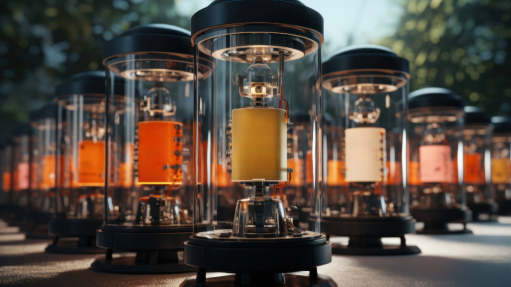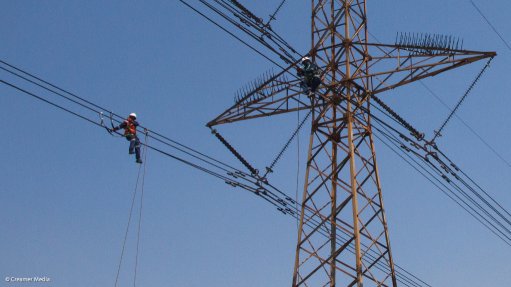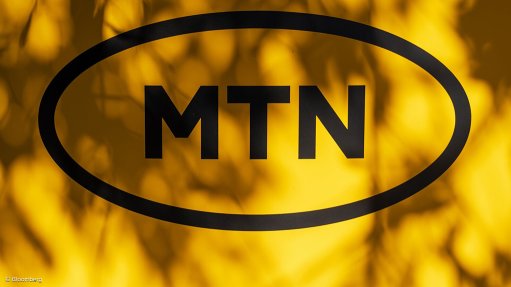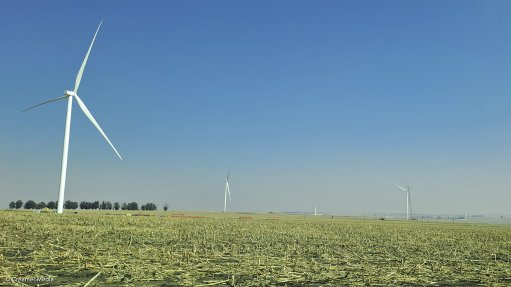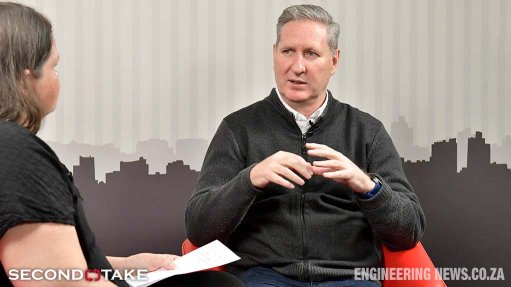Greenpeace against granting of MES compliance postponement to Eskom
South Africa’s National Air Quality Officer Dr Thuli Khumalo’s decision on Eskom’s application for a postponement from complying with the Minimum Emission Standards (MES) at the end of this month could have implications as far reaching as the country’s water security, says Greenpeace Africa.
The environmental organisation is calling on Khumalo to reject Eskom’s application for postponement from compliance with the MES and to set a decisive precedent against polluters in South Africa that continue to undermine society’s right to a clean environment.
Eskom has since 2018 applied for suspension or alternative limits of the MES for several of its coal-fired power stations.
Between April 2016 and December 2017, Greenpeace Africa found that Eskom’s 17 coal-fired power stations reported nearly 3 200 exceedances of their daily Atmospheric Emissions Licence limits for particulate matter, sulphur dioxide and oxides of nitrogen.
Greenpeace Africa issued a statement on Sunday stating that the nexus of coal, water security and air pollution was at the centre of its discussions around World Water Day.
“Towns across the country have been without water for months, with little decisive action from the government to do what is necessary to fight water insecurity. South Africa’s addiction to water-wasting coal continues to be a threat to our right to clean water,” notes Greenpeace Africa climate and energy campaigner Bukelwa Nzimande.
The organisation says Eskom uses the same amount of water in one second that a single person uses in a year – based on access to a minimum of 25 l of water a day.
In seven seconds, the State-owned power utility uses nearly the same amount of water that a household of between three and five people uses in a year.
“Coal has held South Africa in the grips of its claws for far too long, jeopardising South Africans' constitutional right to clean water and unpolluted air.
“Khumalo has to ensure that water security, air quality, and ultimately our humanity, is not compromised further. She must uphold the moral duty of her office and make the right choice around Eskom's application," Nzimande highlights.
REGULATORY BACKGROUND
The MES is a regulatory mechanism aimed at addressing emissions that impact on human health. When a company is involved in any activity listed in the MES, it is required to have an air emissions licence.
The MES was set to manage air quality and ensure that the cumulative air pollutant concentrations from multiple sources are maintained within acceptable levels.
If companies exceed the emission standards specified in their licence, the licence can be revoked or a nongovernment organisation or government’s Green Scorpions, can take court action, with criminal penalties a possible consequence of noncompliance.
Former Environmental Affairs Minister Nomvula Mokonyane had proposed an amendment to the MES that allowed solid fuel combustion installations such as coal boilers, which Eskom’s power stations and petrochemicals giant Sasol’s 17 coal boilers use, to emit double the amount of harmful and health-hazardous pollutant sulphur dioxide.
The so-called doubling provision was first published for implementation by then acting Environment Minister Derek Hanekom as an amendment in October 2018, without inviting public comment as the Air Quality Act requires.
Following the institution of litigation by environmental organisation groundWork, Mokonyane published a second notice, inviting the public to comment on the same proposed amendment to the MES.
The intention of the amendment is to provide for existing plants to comply with a sulphur dioxide minimum emissions limit of 1 000 mg/Nm3 instead of 500 mg/Nm3, which may be indicative of the Department of Environment, Forestry and Fisheries’ appreciation of the relevant industry’s inability to comply at present.
This means that existing plants need to reduce emissions from the 3 500 mg/Nm3 standard to 1 000 mg/Nm3.
Comments
Press Office
Announcements
What's On
Subscribe to improve your user experience...
Option 1 (equivalent of R125 a month):
Receive a weekly copy of Creamer Media's Engineering News & Mining Weekly magazine
(print copy for those in South Africa and e-magazine for those outside of South Africa)
Receive daily email newsletters
Access to full search results
Access archive of magazine back copies
Access to Projects in Progress
Access to ONE Research Report of your choice in PDF format
Option 2 (equivalent of R375 a month):
All benefits from Option 1
PLUS
Access to Creamer Media's Research Channel Africa for ALL Research Reports, in PDF format, on various industrial and mining sectors
including Electricity; Water; Energy Transition; Hydrogen; Roads, Rail and Ports; Coal; Gold; Platinum; Battery Metals; etc.
Already a subscriber?
Forgotten your password?
Receive weekly copy of Creamer Media's Engineering News & Mining Weekly magazine (print copy for those in South Africa and e-magazine for those outside of South Africa)
➕
Recieve daily email newsletters
➕
Access to full search results
➕
Access archive of magazine back copies
➕
Access to Projects in Progress
➕
Access to ONE Research Report of your choice in PDF format
RESEARCH CHANNEL AFRICA
R4500 (equivalent of R375 a month)
SUBSCRIBEAll benefits from Option 1
➕
Access to Creamer Media's Research Channel Africa for ALL Research Reports on various industrial and mining sectors, in PDF format, including on:
Electricity
➕
Water
➕
Energy Transition
➕
Hydrogen
➕
Roads, Rail and Ports
➕
Coal
➕
Gold
➕
Platinum
➕
Battery Metals
➕
etc.
Receive all benefits from Option 1 or Option 2 delivered to numerous people at your company
➕
Multiple User names and Passwords for simultaneous log-ins
➕
Intranet integration access to all in your organisation







